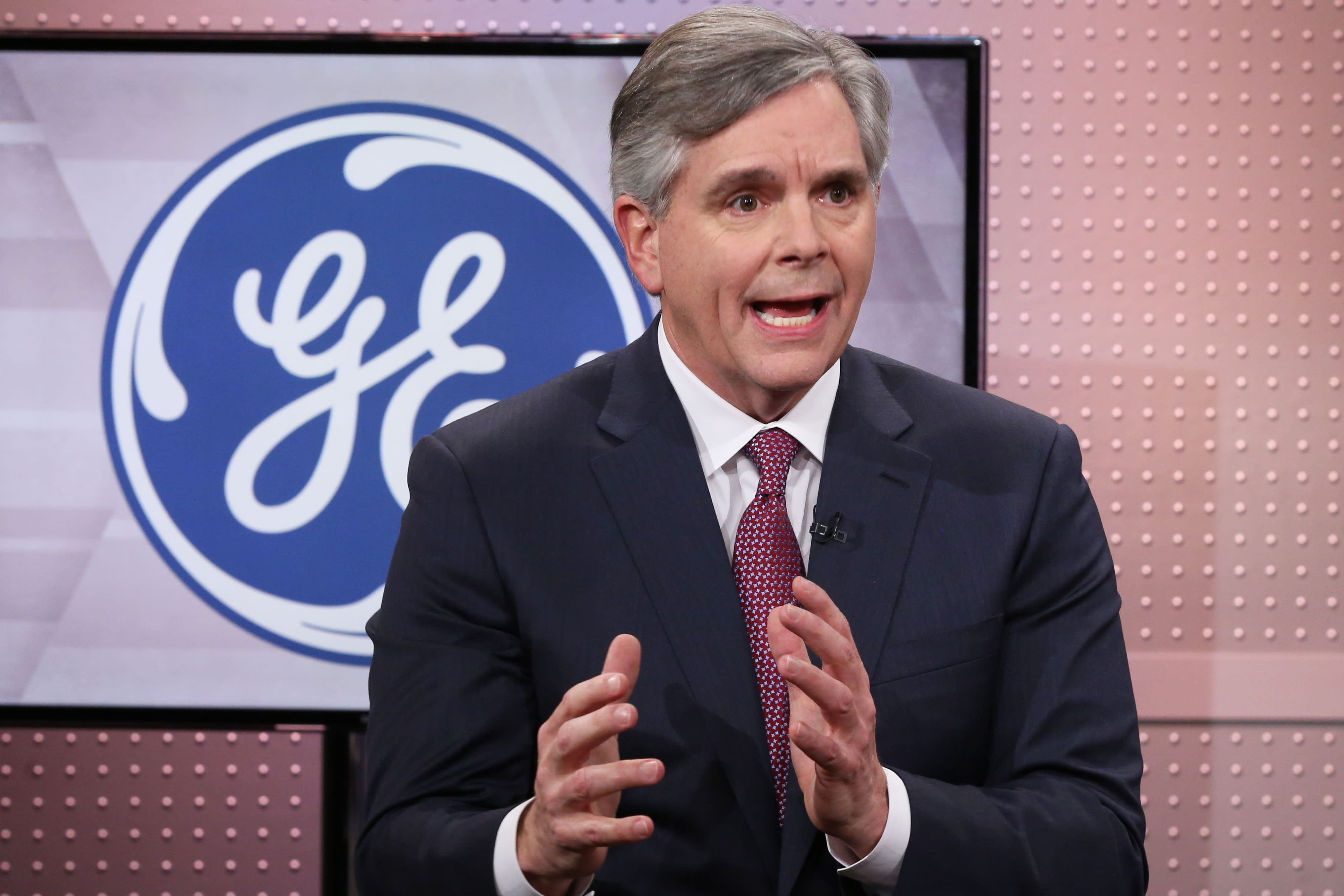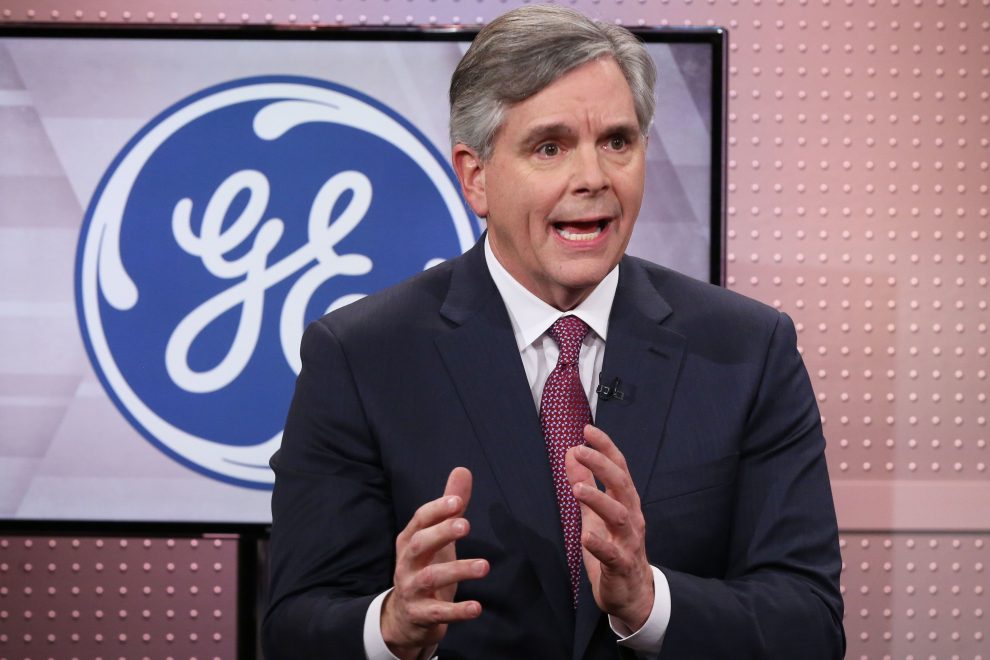
General Electric shares surged Tuesday after the troubled conglomerate reported first-quarter earnings that topped expectations and reaffirmed its 2019 forecast. It also burned less cash than feared.
GE shares were up nearly 4% from Monday’s close of $9.73 a share. They had jumped as much as 11% in the premarket.
Here’s what GE reported versus expectations from a survey of analysts by Refinitiv:
- EPS: 14 cents a shares vs. expected 9 cents a share
- Revenue: $27.3 billion vs. expected $27 billion
GE’s revenue remained steady in the quarter even as the company continued to burn cash. GE is in the middle of what it describes as a multiyear turnaround and advised shareholders that more costs are yet to come.
The power business had an operating profit $81 million, down 71% from a year earlier. Additionally, while GE said the beleaguered unit delivered better-than-expected performance, the company acknowledged that those improvements were “principally driven by timing.”
GE’s renewable energy business reported a $162 million loss, with revenue falling 3% year over year.
The aviation unit remained strong, with a profit of $1.7 billion that was 4% higher than a year earlier. GE said it shipped 424 LEAP engines in the first quarter but the engines are used for the grounded Boeing 737 Max. GE added the aircraft as a risk.
GE Capital continued to reduce its liabilities, completing $1.1 billion in asset reductions in the quarter.
GE described 2019 as “a reset year,” sticking to its previous forecast. Even with the first quarter coming in “better than our expectations,” CEO Larry Culp said in a statement that this was “largely driven by timing of certain items, which should balance out over the course of the year.”
“We expect our performance for the year to be in line with our previous commentary,” Culp said
GE’s industrial free cash flow in the quarter, a key metric that many analysts and shareholders use to judge the health of the company, was a negative $1.2 billion. Free cash flow is money left over after a company pays for operating expenses and capital spending. It’s often used as a gauge of efficiency.
This loss was “better than planned” GE said. Culp warned investors in March that GE would see between flat to negative $2 billion in free cash flow for 2019.
Correction: This story was revised to correct that adjusted earnings per share was 14 cents.










